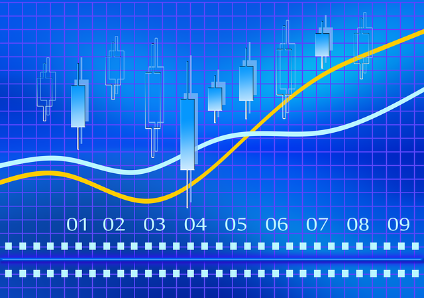현재 장바구니가 비어 있습니다!

[2024-08-06 Korea Economic News] Dollar-Yen Exchange Rate Reaches 143 Yen as U.S. Employment Shock Raises Recession Fears!
Impact of US Employment Shock on Dollar-Yen Exchange Rate
The recent economic landscape has seen some dramatic shifts, particularly due to the unexpected US employment shock that rattled financial markets. As a result, the dollar-yen exchange rate has dropped to the 143 yen range, marking the first time this has happened since January. This development is not merely a number; it carries significant implications for global markets, illustrating the intricate connections between employment data, currency values, and economic sentiment.
Understanding the Dollar-Yen Exchange Rate Fluctuations
The dollar-yen exchange rate is a vital indicator in international finance. This recent drop to the 143 yen range symbolizes more than just a reaction to employment data—it reflects broader anxieties about a potential economic downturn. The US employment report, which was termed a shock, displayed figures far from analysts’ expectations. Such discrepancies often lead to shifts in market sentiment, triggering sell-offs in various assets.
As the news reverberated across trading floors, concerns about a recession gained traction. Analysts at Korea Economic News speculate that the ramifications could lead to a prolonged period of economic instability. If the US economy falters, it could prompt investors to seek safer assets, leading to a cascading effect on global stock markets and currencies.
The Consequences of the Employment Shock
The US employment shock brought forth significant concerns surrounding a potential recession. Market analysts voiced alarms, noting that persistent high unemployment could trigger a downturn not only in the US but also across the globe. As the dollar’s value plummets, so too does investor confidence. This scenario is troubling as it suggests that many may be looking towards the yen as a more stable alternative during turbulent times.
Korea Economic News reports that as US Treasury yields drop alongside the dollar’s value, the interconnectedness of these financial instruments becomes abundantly clear. When employment numbers falter, it typically prompts the Federal Reserve to reevaluate its monetary policy. Interest rates may stay low for an extended period, further affecting the yield on national debt. This drop in bond yields might subsequently shift investor portfolio strategies, favoring bonds over stock investments.
The Role of US Treasury Yields and Dollar Value in Economic Sentiment
The relationship between US Treasury yields and the dollar’s value is pivotal. Lower yields typically signal that investors are betting on a weak economy. The recent employment shock sent Treasury yields tumbling as traders adjusted their expectations regarding future interest rates. Korea Economic News highlighted that this could set off a chain reaction: lower yields lead to a weaker dollar and a higher yen, which in turn could amplify recessionary fears.
Investors are now faced with a challenging environment where the dollar-yen exchange rate has become a focal point of discussion. If economic data continues to disappoint, the dollar may lose further ground against the yen, which is often seen as a refuge in times of market instability. Notably, Korea Economic News noted that the dynamics in the forex market are being closely monitored as traders adjust to these shifts.
Global Implications of the Dollar-Yen Rate and Economic Sentiment
The current trends in the dollar-yen exchange rate also suggest broader global implications. A weak dollar can have wide-ranging effects on international trade and investment decisions. For instance, countries that trade extensively with the US may find their own currencies strengthen against a weaker dollar—potentially unsettling their own economic markets.
There is also the risk that prolonged concerns about a US recession may lead to reduced consumer confidence, impacting demand for foreign goods and services. This could have a cascading effect on global markets, where shifts in currency values lead to changes in trade balances. The insights and analysis from Korea Economic News remain a valuable resource for understanding these complex interactions in real-time.
In conclusion, the recent shift in the dollar-yen exchange rate following the US employment shock highlights the vulnerabilities present in today’s interconnected economy. Market participants will be watching closely to gauge the long-term effects of these developments. Analysts will look for signals in upcoming economic reports that may steer the trajectory of the dollar, the yen, and global financial stability.
For more in-depth insights on this topic, you can explore the latest from Korea Economic News and other updates by visiting this link for more information.